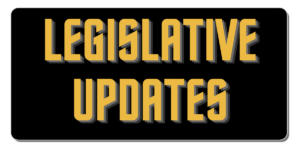The Texas Beekeepers Association plays an active role in issues surrounding honey bees in Texas. We are members of multiple national organizations for honey bee advocacy, industry groups, and participate in Texas and United States legislative efforts that affect honey bees, honey, and the bee industry.
Our legislative committee strives to represent the best interest of beekeepers throughout the State of Texas.
Here is an outline of national and state issues that affect the bee industry, our membership and affiliates.
Issues that affect Honey:
- TBA supports initiatives including legislation that lead to more honest labeling practices in the industry.
- TBA supports the appropriate officials taking effective legal action to end the deliberate adulteration of honey by using corn syrup and similar substances.
- TBA supports beekeepers extracting, packaging and selling pure honey that the beekeeper produces without the requirement of a commercial kitchen.
- TBA supports the use of pure quality honey in the school lunch program.
Issues that affect Beekeeping Education:
- TBA will continue to pursue the creation of a Statewide Apiary Extension Specialist.
- TBA makes proactive efforts to collaborate and promote apiculture programs within 4-H, FFA, and other similar organizations that encourage beekeeping in Texas youth.
Issues that affect Bee Health:
- Priority being given to the rapid development of Varroa Mite control methods that will be economically useful to beekeepers.
- TBA supports initiatives that discourage the unlawful use of pesticides as it affects honey bee and pollinator health.
- TBA supports Texas A&M and the USDA continuing to monitor the expansion of novel honey bee pests, exotic species of honey bees, and the Varroa Mite, while obtaining the necessary funding to limit this expansion.
- TBA encourages and promotes state, regional and county offices, homeowners associations, municipalities, and other agencies to encourage roadside and public land best management practices which permit and encourage the full life cycle of flowering plants.
- TBA rejects legislation that encourages the introduction of non-native chinese flea beetle to control or eradicate chinese tallow trees throughout Texas.
- Land conservation in Texas through 1-D-1 agricultural valuation that encourages land owners to work with beekeepers allows for bees to have access to forage, food, and land. This partnership between landowners and beekeepers encourages healthier bees.
- Funding for Research: There is no question that the honey bee industry continues to sustain major colony losses throughout the country. TBA supports legislation and appropriations to this cause. In addition to TAMU and USDA-ARS, we will work with other public and private research institutions that can provide meaningful research opportunities for our industry.
Issues that affect Commercial Beekeepers:
- TBA supports legislation that simplifies permitting processes for commercial beekeepers in order to make it easier for them to perform agricultural services without hindering the agency’s mission to safeguard the apiary industry.
- TBA rejects legislation that encourages the introduction of non-native chinese flea beetle to control or eradicate chinese tallow trees throughout Texas.
- Land conservation in Texas through 1-D-1 agricultural valuation that encourages land owners to work with beekeepers allows for bees to have access to forage, food, and land. This allows beekeepers access to more locations for bees to rest when crop pollination is not needed.
- Crop Insurance & ELAP programs: TBA supports these programs to be more available to beekeepers, increased funding for these programs and to make them permanent. These programs need to allow for the management of risk without opening the door to fraud.
- Transportation: Safe and efficient transportation of bee hives throughout the U.S. is essential to beekeepers as well as American agriculture. The “hours of service” limitations make it extremely difficult to transport bees legally during longer daylight hours. TBA supports legislation that considers the needs of bees and beekeepers in regards to transportation.
- Immigration Reform: Commercial beekeepers and farmers in Texas often rely on H-2A workers and therefore immigration reform as it results to the temporary work visa process can present challenges to the beekeeping industry.
Issues that affect Bee Removers:
- Legislation allowing beekeepers registered with the Texas Apiary Inspection Service to remove bees without regulation from the Texas Structural Pest Control Board.
- Legislation allowing private property owners or their agents to control wild swarms or colonies of honeybees or Africanized Bees on their own property.
Issues that affect Land Owners & Conservation:
- TBA supports legislation that encourages cooperation among commercial beekeepers, farmers, ranchers and other land managers to develop bee habitats where feasible and possible on both public and private land.
- Infrastructure: We know that rural communities play an important role in our state’s economy. Texas agriculture provides the food and fiber for our country and the world. Our beekeepers and farmer’s ability to meet domestic demands and compete globally depends on a robust and reliable infrastructure. This includes roadways, railways, waterways, and broadband.
- Tax Reform: TBA collaborates with Farm Bureau as well as with members of the Texas Ag Council as it affects family farm estates, farmers, and landowners who share their land with beekeepers. We have provided links to the Farm Bureau background on these issues to better understand our legislative committees stance on these issues.
- Environment: Beekeepers care about clean water, land preservation, and environmental health as it affects honey bees and future generations. Cooperative, constructive efforts among federal and state regulators, beekeepers, farmers and ranchers, coupled with ongoing research will help us make decisions to preserve our environment and food supply.
- Neonicotinoids
- New Clean Water Rule
- Conservation of endangered species
Keep up to date with us on the issues during legislative sessions by following along with our bee related news updates and legislative updates.
Previous Sessions:


